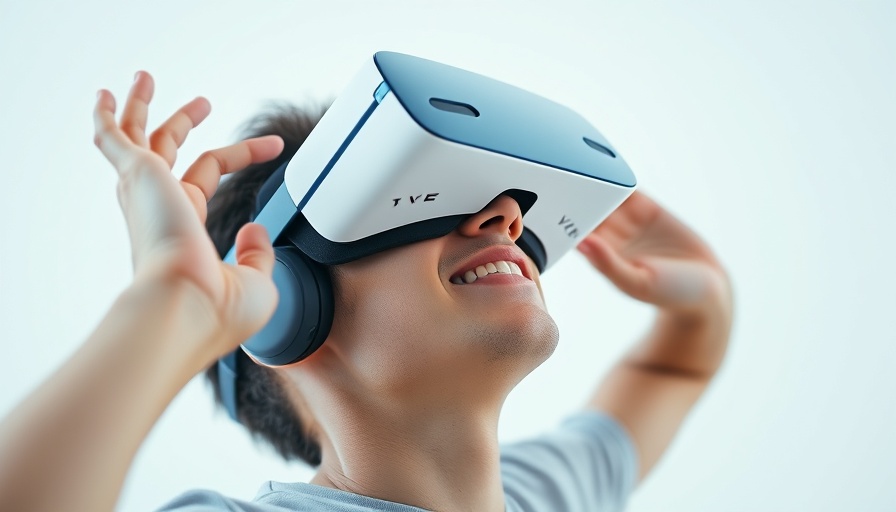
Unlocking the Future of Mental Health Management
As we advance further into the era of technology, the intersection of healthcare and innovation continues to shape the way we approach mental health treatment. A groundbreaking study from Texas A&M University has unveiled the potential of immersive virtual reality (VR) meditation as a formidable approach to alleviating symptoms of anxiety and depression. This method not only provides an engaging environment but also a personalized experience aimed at promoting emotional well-being.
The Rise of Virtual Reality Meditation
Historically, meditation has served as a foundational practice for enhancing mental health and achieving tranquility. With the introduction of VR technology, this ancient practice is evolving to meet the needs of modern individuals. The Texas A&M study indicates that participants who utilized VR in their meditation sessions experienced noticeably improved mental health outcomes compared to those meditating through traditional methods. This innovative approach allows for a more immersive experience that can lead to better emotional regulation and stress reduction.
Why Virtual Reality?
At first glance, one might question why VR should be integrated into meditation practices traditionally associated with simplicity. The answer lies in the powerful combination of engagement and personalization offered by VR. Patients can choose from various serene sceneries—such as tranquil beaches or lush meadows—and accompany these visuals with natural sounds, tailoring their experience to specific therapeutic outcomes. This personal touch often enhances the feeling of presence and control, making relaxation feel more achievable.
Understanding the Study's Physiology
The research conducted involved 25 patients diagnosed with both anxiety and depression who engaged in immersive meditation sessions using Meta's Oculus Quest 2 headsets for 30 minutes, three times a week. Participants filled out the General Anxiety Disorder-7 questionnaire and experienced heart rhythm analysis using HeartMath technology to assess emotional stability pre- and post-session. Such physiological measures provide invaluable insights into the efficacy of VR meditation as a clinical intervention.
The Potential for a Drug-Free Alternative
The pursuit of alternative therapies has gained traction, particularly as the side effects of pharmaceutical treatments remain a concern for both healthcare practitioners and patients. According to Junhyoung “Paul” Kim, a researcher involved in the study, there is a significant push towards developing treatments that rely less on medications, especially as the World Health Organization predicts clinical depression to soon become the most prevalent illness globally.
Beyond Relief: Enriching Patient Quality of Life
Understanding mental health disorders is crucial, especially as they often correlate with serious physical health risks. Depression and anxiety not only hinder emotional regulation but also pose fealty in someone’s quality of life. This is where VR meditation shines. Aside from symptom relief, enhancing patients' overall well-being can lead to lower incidence rates of related conditions, increased resilience, and a better emotional landscape.
The Future: Shifting Paradigms in Mental Health Care
As we look ahead, the implications of VR technology in mental health treatment could widely transform the landscape. Concierge health practitioners seeking to integrate innovative solutions into their practice may soon find VR meditation to be a viable adjunct therapy. With the advantage of being engaging and personalized, VR meditation offers a promising tool for enhancing traditional therapeutic practices.
Actionable Insights for Health Practitioners
The adoption of VR meditation can be a game-changer in addressing mental health symptoms in patients. Here are several steps health practitioners can take to integrate this technology into their practices:
- Conduct thorough research on available VR meditation applications that fit your practice’s philosophy.
- Consider trialing VR sessions with selected patient groups to gauge effectiveness and collect feedback.
- Stay informed about the latest developments in VR technology to ensure your practice utilizes the best resources available.
- Collaborate with tech-savvy professionals to ensure operational ease when introducing VR into your services.
In an age where mental health continues to rapidly evolve alongside technological advancements, embracing innovative approaches like VR meditation could significantly enhance patient treatment protocols. By remaining ahead of the curve, concierge health practitioners can provide their patients with cutting-edge therapies while improving their quality of life.
 Add Row
Add Row  Add
Add 






Write A Comment